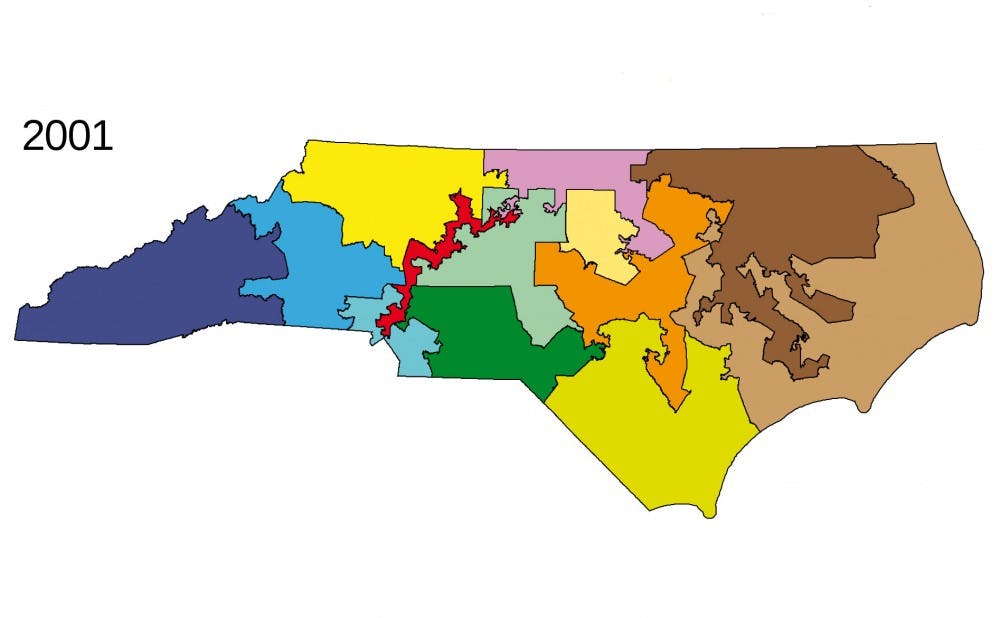A federal three-judge panel struck down North Carolina's congressional map Tuesday, declaring it unconstitutional because the Republican-led legislature gerrymandered congressional districts to maintain a political advantage.
The ruling ordered the General Assembly to redraw district lines by Jan. 24 and said the court would issue its own map if it finds the replacement unsatisfactory.
In the opinion of Judge James Wynn, the panel argued that North Carolina's partisan gerrymandering violates the Equal Protection Clause of the 14th Amendment along with the First Amendment and Article I of the Constitution. The decision comes after 10 of the 13 districts in North Carolina elected a Republican to Congress in the 2016 election despite relatively even statewide splits between Republican and Democratic voters.
“Rather than seeking to advance any democratic or constitutional interest, the state legislator responsible for drawing the 2016 Plan said he drew the map to advantage Republican candidates because he 'think[s] electing Republicans is better than electing Democrats,"' Wynn wrote in his 191-page majority opinion. “But that is not a choice the Constitution allows legislative mapdrawers to make.”
Wynn, a 2010 appointee of Barack Obama, targeted state Rep. David Lewis, a Republican, who instructed the creator of the 2016 map to draw districts in a way that would maximize Republican chances of winning.
Critics of the current map praised the decision as a long-awaited remedy for an unfair system.
“We’re enormously gratified on behalf of our clients and all voters in North Carolina that no one will have to endure another congressional election under an unconstitutional map,” Allison Riggs, a senior voting rights attorney for the Southern Coalition for Social Justice which represented the League of Women Voters as a plaintiff in the case, told the News and Observer. “The court was clear in demanding a real remedy before the 2018 elections, and we expect the General Assembly to respect that order.”
But others denounced the ruling as judicial activism on the part of the three-judge panel, two of whom were appointed by Democratic presidents.
Dallas Woodhouse, executive director of the North Carolina Republican Party, said on Twitter that Wynn was “waging a personal, partisan war on North Carolina Republicans.”
After the ruling, Republican state Sen. Ralph Hise noted that legislative leaders were planning to ask the U.S. Supreme Court for a stay in the ruling because the Jan. 24 deadline is “unreasonable.” Leaders of the Republican legislature plan to appeal the ruling to the Supreme Court, the News and Observer reported.
With such an appeal, the North Carolina case would join two other challenges on gerrymandering that are already before the Supreme Court. The court heard an appeal alleging gerrymandering by Wisconsin's legislature Oct. 3 of the current term, but the Justices have yet to announce their ruling.
Judge William Earl Britt, an appointee of President Jimmy Carter, joined Wynn’s majority opinion. The third judge, George W. Bush appointee William Osteen, authored a separate opinion agreeing that the existing map violated the 14th Amendment. However, he disagreed with other parts of Wynn's ruling, such as an order that an independent expert start drawing an alternative map.
Get The Chronicle straight to your inbox
Signup for our weekly newsletter. Cancel at any time.

